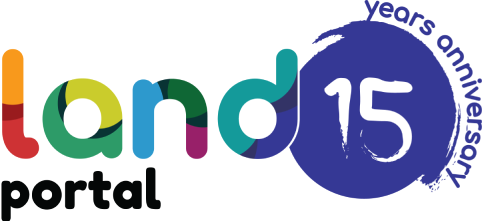With this Technical Note, the Independent Science for Development Council (ISDC) seeks to stimulate novel, thoughtful action by CGIAR leaders and researchers that embeds inclusive practices and behaviors in agri-food systems research. Based on a literature review and expert consultations, ISDC finds that concepts and practices of inclusive innovation are emergent and recommends that CGIAR pursue an inclusivity transition in a learning-while-doing mode.
Search results
Showing items 1 through 9 of 12443.-
Library ResourceJanuary, 2022Italy
-
Library ResourceJanuary, 2021Italy
Digital technologies are slowly spreading in agriculture sectors globally. But their adoption is hampered by the digital divide which requires significant public investments, improved policy and incentive frameworks to be bridged. Only after that, digital transformation will take place at scale. Digital Agriculture Profile (DAP) is meant to assess the country's readiness for this digital transformation by identifying main bottlenecks, opportunities and risks for digital transformation.
-
Library ResourceJanuary, 2022Czech Republic
Cattle is the most important agricultural activity in Colombia, representing around 30.6% of the national agricultural GDP and 19% of the agricultural (6% of the national) employment, surpassing the values of coffee and palm oil production by three and eight times, respectively. Despite its economic and social importance, the Colombian cattle sector is characterised by gender differences and inequalities, which are not yet fully understood.
-
Library ResourceJanuary, 2021Netherlands
There is a need to overcome systemic bottlenecks to facilitate agri-data management, access, and sharing. Among the possible measures recommended by various studies is the development and establishment of national ag- data hub. Understanding the gaps, needs, constraints, and priorities of partners is essential to co-define contextualized interventions that are timely and useful. One of the key activities is thus be to engage with partners in order to consult them on data and infrastructure needs and requirements in order to facilitate co-creation.
-
Library ResourceJanuary, 2020Italy
-
Library ResourceJanuary, 2023Germany
Panorama solutions on Sustainable Rangeland Management (SRM) toolkit which is tested in North Africa and West Asia (NAWA region), with a specific focus on Tunisia, Jordan and Uzbekistan, and offers a package of holistic and multi-disciplinary tools for addressing the root cause of rangeland degradation.
-
Library ResourceJanuary, 2021Netherlands
This report presents the RE-IMAGINE research in one of its four regions: Southeast Asia. RE-IMAGINE builds on climate foresight expertise of the Climate Change, Agriculture and Food Security (CCAFS) Program and analyses the role of foresight in climate governance across the globe. Anticipating the possible impacts of climate change has become a key global focus. Scenarios and many other methods and tools are used today to imagine climate futures and develop strategies for realizing new futures while governing climate change.
-
Library ResourceJanuary, 2022France
A chapter in Agroecology Transformation for Sustainable Food Systems: Insight on FRANCE-CGIAR Research, The publication reflects the enormous opportunity ahead to enhance the complementarity of crop and livestock farming through prompting different technologies. This chapter is highlighting the role of drought resilient multi-purpose crops in low rainfall agrosylvopastoral systems in MENA and South Asia to respond to the challenges facing our food, land, and water systems
-
Library ResourceJanuary, 2023Montenegro
The Intergovernmental Panel on Climate Change (IPCC) provides the reference for national greenhouse gas emission (GHG) inventories towards standardized, accurate, measurable, and comparable National Inventory Reports (NIR). For compliance with the 1.5â°C commitments under the Paris Agreement, most countries have made efforts to improve their inventory methods to tier 2 or 3.
-
Library ResourceJanuary, 2021Netherlands
Agriculture has remained central to the livelihoods of millions of Africans. Yet, far too many agriculture-dependent Africans remain food insecure and malnourished. Agriculture is vulnerable to climate shocks. The number of undernourished people rose from 195 million in 2006 to 256 million in 2018. By the end of 2018, more than 65 million people across 33 African countries faced "crisis" levels of acute food insecurity or worse. The COVID-19 crisis is expected to worsen food insecurity in the region further, making resilience-building an even more urgent task.
Land Library Search
Through our robust search engine, you can search for any item of the over 64,800 highly curated resources in the Land Library.
If you would like to find an overview of what is possible, feel free to peruse the Search Guide.

